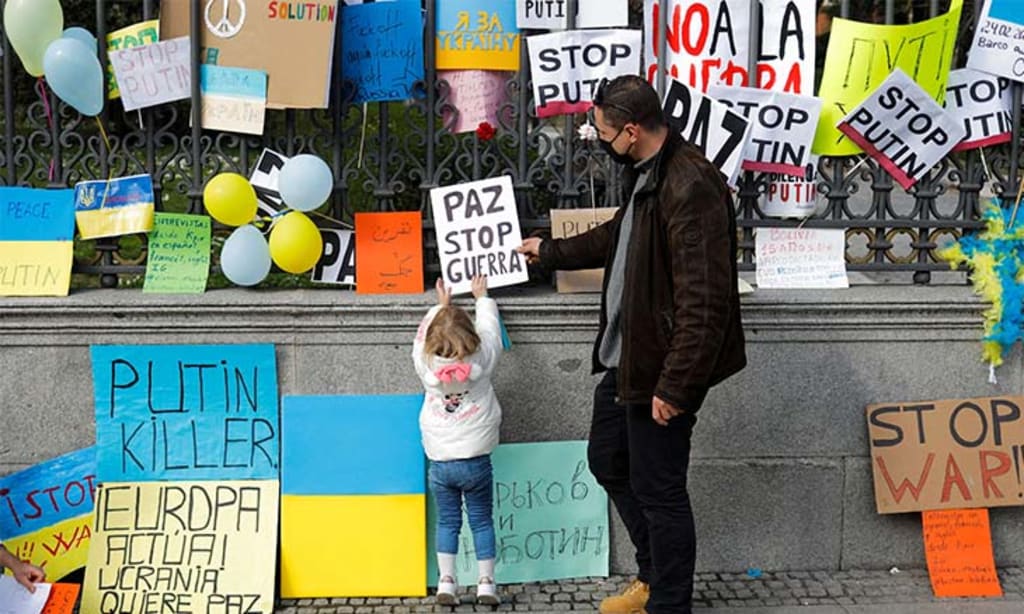
Russian President Vladimir Putin surprised the world once again by ordering Russia's nuclear deterrent forces to be put on a "special combat alert".
The decision, according to Putin, came in response to NATO officials who made “aggressive statements against Russia,” after Western officials took “hostile economic steps.”
Returning to the latest statements issued by NATO officials, we find a statement by its Secretary-General, Jens Stoltenberg, who says that the alliance is deploying response force units on land, air and sea to respond quickly to any emergency event, and according to the German news agency, Romania is a candidate to send There will be ground forces there, and some of those forces will go to Norway to “participate in an exercise.”
There is a second statement, issued on the same day (February 25) by Stoltenberg demanding that the Russians not be attracted to President Putin's propaganda, and that the war on Ukraine "will not make Russia safer or more respected", as well as a statement in which he says that the founding document for joint relations and security between NATO and Russia " It has become obsolete in light of the Russian invasion of Ukraine.”
Putin's dangerous decision received Western reactions, ranging from placing White House spokeswoman Jen Psaki for the decision in the context of "fabricating non-existent threats in order to justify further aggression" and condemning the US ambassador to the United Nations, Linda Thomas Greenfield, who saw in it " An unacceptable escalation” to the response of the NATO Secretary General himself, who said it was a “dangerous statement” and “irresponsible behaviour.”
The escalation is really dangerous, so is it commensurate in strength with the justifications that led to it?
It is difficult, to begin with, to imagine that the Russian president assumes that Europe, the West, as well as the democratic system in the world, will stand idly by during the “special operation” carried out by his army, which will lead to the occupation of a sovereign European state (not to mention being affiliated with its system). political).
The Russian army’s attack on Ukraine represents a huge military and political development that goes beyond previous Russian military interventions in Georgia, Kosovo, Syria and Ukraine itself (with the occupation of Crimea and the eastern regions of the country in 2014). Originally accused of abandoning Ukraine) to move.
However, it is not possible to consider the limited military actions taken by NATO, or the statements of its officials, a sufficient reason to raise the degree of Russian combat readiness to the point of using “nuclear deterrence.”
Most likely, the main concern of the Kremlin master is due to the inability of his armies to resolve the war quickly, and the failure of his calls for the Ukrainian army to defect from the political leadership, in addition to the formation of internal popular resistance even in the eastern regions that Russia assumed included a popular supporter for it.
These adverse elements to the invasion were accompanied by an increase in global sympathy with the Ukrainians, as well as the growth of anti-war demonstrations within Russia itself, as well as with painful global economic, political (and sporting) decisions of the Putin administration, gradual from sanctions against him personally, and against senior Russian officials, and is now approaching to announce An economic “nuclear option,” which is to remove Russia from the SWIFT financial system, which would be a major blow to the Russian economy.
Putin's decision, in this context, is a sign of weakness rather than strength. Nuclear weapons are virtually useless in peripheral conflicts, and major nuclear powers were defeated on the battlefield so that their huge arsenals were unable to provide them with assistance, as happened with America in Vietnam and the Soviet Union in Afghanistan. .
Nuclear wars are impossible because they mean joint suicide between their parties, and waving them, in the manner of Putin during his talks with the French President, or “in response to statements” is an expression of weakness, not strength.





Comments
There are no comments for this story
Be the first to respond and start the conversation.